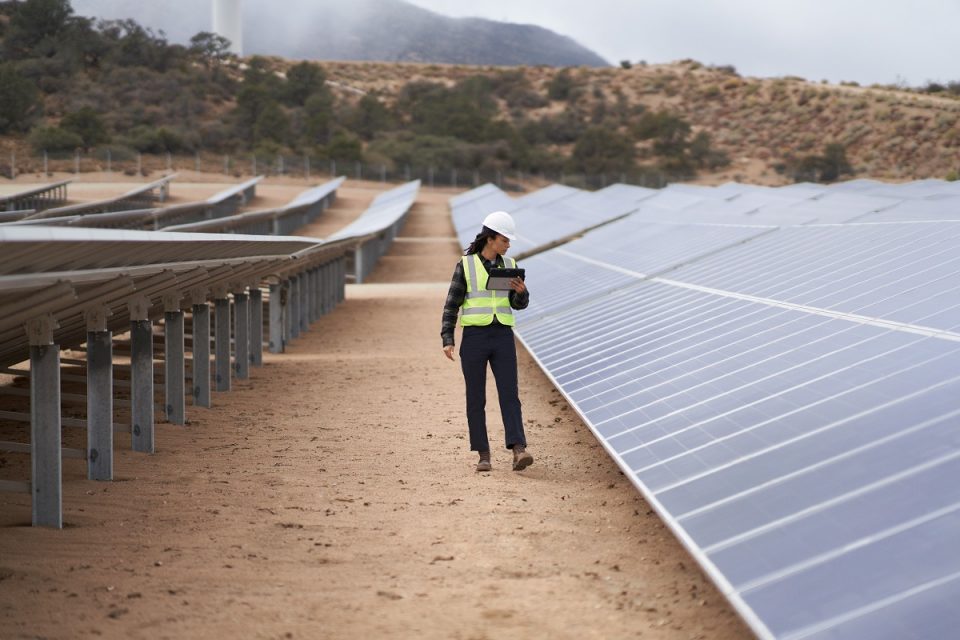Sustainability has become a cornerstone of EU policy making. The EU Green Deal sets ambitious targets that impact every member state: climate neutrality by 2050, and CO2 emissions reduction of at least 55% by 2030. The EU’s €734 billion Recovery and Resilience Facility is designed to help the EU achieve its sustainability goals by setting Europe on a path of digital transition, creating jobs and spurring growth in the process. Digital innovation will play a vital role in helping organizations lower their energy consumption, use resources more efficiently and make informed decision based on relevant data.
,,Data-led organizations empower leaders and workers alike to make smarter decisions that improve business and sustainability performance. Unifying data from across the business and using AI to create a layer of intelligence enables firms to turn better insights into action, helping drive sustainability, operational efficiency, growth opportunities, monitor impact and report and, ultimately, create value.” – said Petra Čiček, Sustainability Lead for Central and Eastern Europe at Microsoft. „Our products and services are built with sustainability in mind. With Microsoft Cloud for Sustainability we are helping customers advancing on their sustainability journey by bringing together environmental, social, and governance (ESG) capabilities from across the Microsoft cloud portfolio with solutions from our global and local ecosystem of partners. This can help organizations to improve their business processes and reduce the environmental impact of operations, identify opportunities to build more sustainable IT infrastructure, create greener value chains, and automate carbon accounting and reporting.”
In North Europe, by adopting Cloud for Sustainability solution, Finnish mining and cement company FLSmidth accelerated its own sustainability journey and delivered innovative solutions to its customers, enabling completely new business models, and reducing 10-12 % of global emissions. This company is on track with its MissionZero plan for zero emissions and zero waste by 2030. In the Baltics, the Latvian airline company, airBaltics combined Power Apps with Teams, so that their ground crew can now execute tasks via Microsoft Teams using their mobile devices. This optimization has helped save 1,000 printed report pages a month and also reduced the time needed for data input from two days to 15 minutes.

In Central Europe, Czech company Innogy, one of the country’s leading energy supply companies, turned to Microsoft Power Apps, which allowed them to generate quotes and unique system designs 25 percent quicker while improving insight and enabling Innogy to service more customers more effectively, and helping thousands of homeowners switch to a sustainable, eco-friendly future. In Slovakia, Slovenské elektrárne (SEAS) needed a more efficient and cost-effective system and implemented a machine learning solution comprised of Azure Synapse Analytics and Azure Databricks, which has saved the company around €100,000 and cut down forecasting time from two hours to 15 minutes. The National Fund for Environmental Protection and Water Management of Poland simplified the grant submission and verification process by developing an online application portal based on Microsoft Azure. And in Hungary, Parkl started to use IoT Hub to establish network connections and protocols that are connected to its various IoT devices. This helped lower the carbon footprint by optimizing parking capacities and enabling users to locate and reach them more quickly.
In South and East Europe digital transformation is also evolving in the agriculture sector, in Austria for example, BioWeingut Hofmann has started a pilot project of sensor-placing in risky areas of vineyards and orchards in order to record information such as temperature, humidity, and topography. The collected data is then sent to the Microsoft Cloud that, combined with weather prediction models and machine learning provides detailed forecasts. City of Zagreb, the capital of Croatia, implemented the Azure-based system, and expedited enrolling of children in kindergartens. When we talk about overcoming urban challenges, we find good examples in the
City of Athens has become a smart city by using technology and innovation by the strategic placement of innovative sensors which collect data on streets and air cleanliness, accessibility for pedestrians and people with disabilities, noise pollution, temperature, and humidity.
,,While technology is a vital tool, it’s people that are powering the green transition. Microsoft Digital Futures Index – a data-led exploration of digitization in Central and Eastern Europe – found more than hundred correlations between different areas of digital development and sustainability. Of these, investment in digital technology and digital skills had the strongest positive relationships with environmental outcomes. Sustainability is responsibility and opportunity of our generation and businesses, governments, leaders should accelerate the progress with technology solutions and developing a new generation of knowledge and skills. ”, Petra Čiček concluded.
Microsoft is driving progress toward a more sustainable future around the world and in the region by reducing own environmental footprint, accelerating research, helping customers and partners build sustainable solutions, and advocating for policies that benefit the environment. Microsoft is committed to being carbon negative by 2030, removing all our historical emissions by 2050, producing zero waste across our direct waste footprint and being water positive by 2030 – replenishing more water than we use, and protect more land than we use by 2025. The company is building a Planetary Compute to transform the way we monitor, model, and ultimately manage earth’s natural systems and has launched a $1 billion Climate Innovation Fund to accelerate technology development and deployment of new climate innovations, together with global Entrepreneurship for Positive Impact program that provides extensive support to entrepreneurs solving the world’s most pressing challenges.
As recent Microsoft Digital Futures Index has shown, digitally advanced countries are proven to be greener, wealthier, more innovative, and more competitive.
Artificial Intelligence, data, and skilling will be critical to drive sustainable goals. Technology-enabled measurement and data, through remote sensors and other IoT devices, satellites, and connectivity, combined with big data analytics will play a critical role in monitoring and optimizing resource use in the future.





